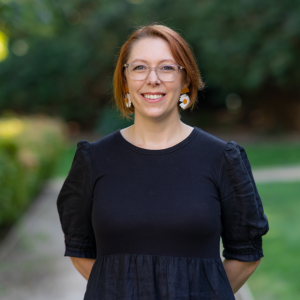Sally Mastwyk: Improving the Recognition and Management of Metabolic Syndrome in Primary Care Physiotherapy Practice
 An experienced women’s health and pelvic floor physiotherapist, Sally also works as a Lecturer in Physiotherapy at La Trobe University in Melbourne, Australia. Her PhD focuses on improving the recognition and management of metabolic syndrome in primary care physiotherapy practice.
An experienced women’s health and pelvic floor physiotherapist, Sally also works as a Lecturer in Physiotherapy at La Trobe University in Melbourne, Australia. Her PhD focuses on improving the recognition and management of metabolic syndrome in primary care physiotherapy practice.
Sally’s PhD is part of the joint international collaboration between Sheffield Hallam University and La Trobe University.
Hi, Sally! First of all, please tell us a bit about what is your PhD research focused on
My PhD explores a condition called metabolic syndrome, a collection of risk factors that in combination significantly raise the risk of chronic disease. This condition can be reduced or even reversed with lifestyle modification such as physical activity and physiotherapists are well positioned to identify and manage this.
Why is it an important area of study?
One-quarter of adults globally have metabolic syndrome. The high prevalence is a significant public health concern as people with metabolic syndrome are twice as likely to develop cardiovascular disease, three times more likely to develop cancer, and five times more likely to develop diabetes. It doubles the healthcare utilisation and costs compared to people without it.
Metabolic syndrome is currently under-recognised among healthcare professionals, including physiotherapists. Consequently, important opportunities to screen and manage people with this condition are being missed which could have prevented the development of chronic disease.
Tell us about your career/academic journey so far
I am an experienced women’s health and pelvic floor physiotherapist and have worked as a Lecturer in Physiotherapy at La Trobe University for many years. In that time, I have undertaken a variety of academic roles including subject and clinical coordination and subject design and have taught several physiotherapy subjects across various year levels. My curriculum, learning and teaching expertise have resulted in a Vice-Chancellor and Faculty teaching award. I have been involved in several research studies related to pelvic floor physiotherapy, maternity care and learning and teaching and am excited about this new research direction I am pursuing in my PhD.
What is it like studying on a joint PhD Scholarship?
This joint PhD opportunity with Sheffield Hallam and La Trobe Universities enables me to work with a diverse group of expert supervisors, build international research connections and collaborations and explore global issues in physiotherapy practice. Of course, the opportunity to travel and experience living on the other side of the world with my family was also a big incentive.
What do you hope to do after your PhD?
I hope to continue my academic career and continue research in metabolic syndrome, which aims to establish a greater focus on preventative healthcare practices in physiotherapy.
Read more about Sally on her La Trobe staff profile.
Keep up to date with what’s happening at the AWRC on our Twitter and Website
